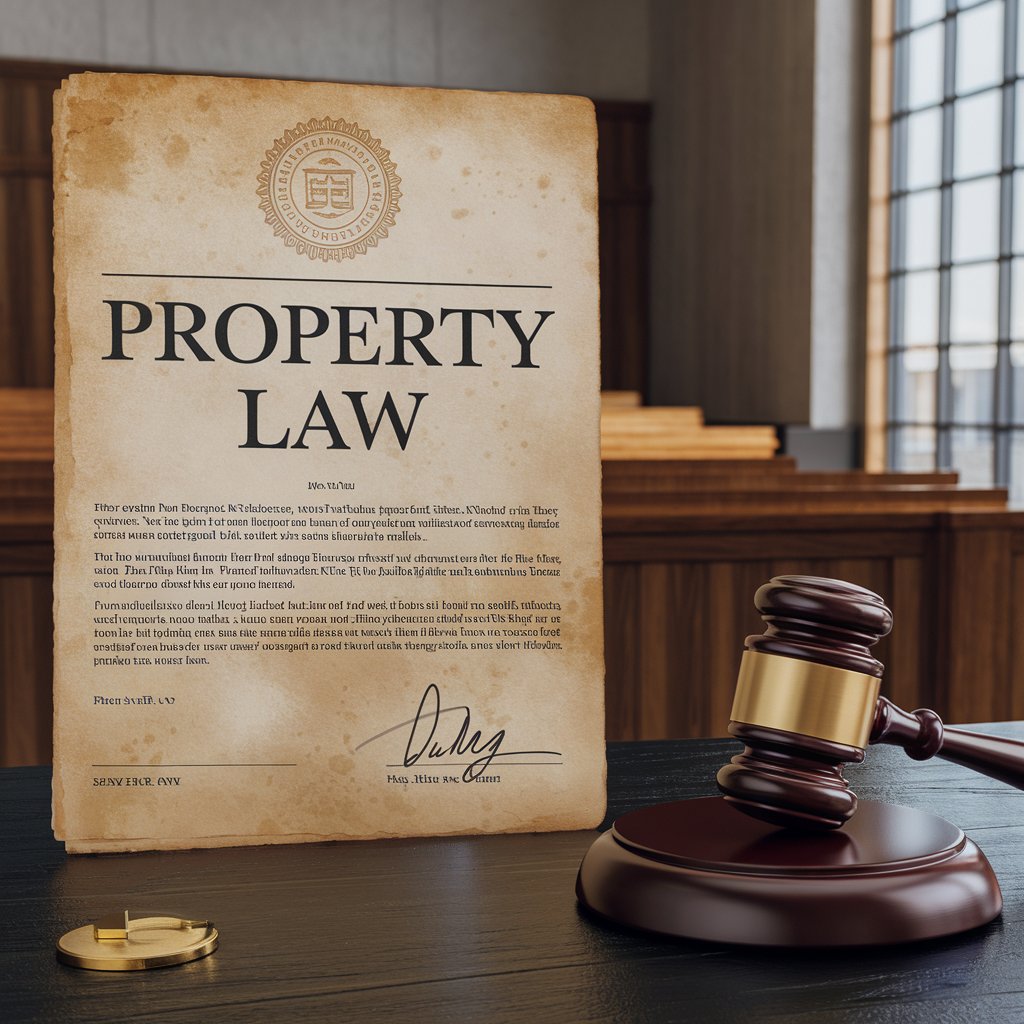The right to property is present in the Federal Constitution, and can be briefly defined as the legal power to use, enjoy, dispose of and recover a certain asset. It is a real right, enforceable erga omnes and which must fulfill its social function.
Property law is a topic that is constantly present in various areas of law, as well as in the daily lives of people in general. Although the main paradigms occur in the real estate context, property law encompasses issues related to property:
- of movable property;
real estate;
and even intellectual rights, such as trademarks and patents.
The legislator, within the Civil Code, did not define what property would be. Thus, referring only to the attributes/components of property (use, enjoyment, disposal and recovery).
Therefore, it was up to the doctrine to conceptualize the right to property. Given that it has existed in the Brazilian legal system for over a century, there is a great deal of doctrine related to the subject. Therefore, throughout this article, we will analyze them objectively and outline their main topics.
Keep reading to find out more! 😉
What is property rights?
We can say that the right to property is the broadest right of a person in relation to a thing. Through property, the good is subject to the lordship of the holder, called the owner.
It should also be noted that the right to property encompasses both tangible and intangible assets, movable and immovable, as long as it is an economic asset with patrimonial expression. The following legal assets would not fall under the right to property:
- to life;
- freedom;
- ea. honra.
- In a simplistic conceptualization, also called an analytical definition, the right to property can be conceptualized as the legal power granted by law to someone to use, enjoy (or enjoyment), and dispose of a certain asset. In addition to being able to recover it from whoever is unjustly possessing it.Let us see that the analytical definition, originating from Roman Law, is summarized in the exposition of the elements of property, which are:
- to use;
- enjoy (or enjoy);
- dispose of and recover.
When did the right to property arise?
The origins of the legal institution of property can be traced back almost automatically to Roman Law. Surprisingly, since then the concept of property has remained practically unchanged.
Despite the dynamism of law, human life in society and the fluidity of legal relations, property rights are still based on the rights to use, enjoy and dispose of.
Obviously, the doctrine has already tried to present different concepts for the topic, but the synthesized Roman analytical concept is still the most widely known and used.
-
What are the elements of property law?
From its own definition, we can extract its components, or rather, characterizing elements.
Imagine that the scholar, in order to arrive at the concept of property rights, asked himself: When can it be said that someone owns something? From this, the elements themselves were used for its conceptualization. They are:
- Right to use;
- Right to enjoy or enjoyment;
- Right to dispose;
- and right to claim.
Let’s look at each one individually! 🙂
Right to use
It is the right that the owner has to place the property at his service, as long as it does not cause harm to third parties and does not conflict with the Law.
Right to enjoy or enjoyment
To enjoy or to enjoy is to obtain all the advantages that the thing provides, it is to enjoy the good.
Right to dispose
To dispose means to apply, to employ, to give purpose. The owner is guaranteed the right to dispose of the property freely, such as:
- sell;
- to replace;
- and lend.
Right to claim
It is the prerogative to claim the thing from whoever unjustly possesses it. In other words, to demand that possession of the good be taken from whoever took it unjustly and be returned to the owner.
How is property rights proven?
In practical terms, it is important to know how the existence of property rights is proven. In the case of real estate, acquisition generally occurs through the registration of the title of acquisition with the competent General Real Estate Registry Office.
Therefore, it is worth saying that the maxim “If you do not register, you are not the owner” is correct. Although the deed is an acquisition title, endowed with public faith and enforceable against third parties, the property belongs to the registered holder, the owner of the property.
Therefore, it is not enough to draw up a deed to become the owner. Only the registration of the title of acquisition makes the purchaser the legitimate owner of the acquired property.
With regard to movable property, proving ownership is much simpler. Case law and doctrine, in light of the Civil Code, have already established that the person who holds direct possession of the thing is presumed to be the legitimate owner and lord.
Read also: What is intellectual property and how does it work?
How do I prove that I am the owner of a property?
As stated, the main proof of ownership of a movable asset is direct possession, since the transfer of ownership of movable assets operates with simple tradition, in accordance with art. 1267, CC.
That is, in Civil Law, the tradition consists of the delivery of the asset to someone or the effective transfer of the thing. Thus, once the tradition has been carried out, the transferor immediately transfers ownership of the movable thing.
However, it is worth noting that this rule does not apply to real estate. In relation to real estate, real estate ownership is transferred with the real estate registration.
From this perspective, to prove your ownership, simply go to the competent General Property Registry Office and request a certificate of encumbrances on the property. This document will contain the name of the owner of the property, that is, the registered owner.
-
What is the difference between possession and ownership?
As we have already studied the concept of property, we will emphasize the concept of possession in this topic, to finally conclude the difference between the institutes.
Despite their similarities, possession and property are substantially different concepts. First of all, it is important to say that possession is not a real right, like property.
-
How to acquire ownership of a property?
We have seen that ownership of movable property is presumed by simple tradition, in accordance with art. 1267, Civil Code. However, there are four ways of acquiring immovable property:
- record;
- hereditary succession;
- usucaption;
- and accession.
Record
As stated, the transfer of ownership of a real estate property occurs with the real estate registration. Therefore, the instruments of purchase and sale, donation, exchange, donation, among others, do not by themselves produce the effect of transferring ownership from the sellers to the purchaser.
These contracts, even if entered into by public instrument, only generate credit rights between the parties, whose ownership of the alienated property will only be transferred by registering the title in the competent General Real Estate Registry Office.
-
Usucaption
Another way of acquiring real estate is usucaption, in its different forms.
Usucaption, already consecrated by the majority doctrine and mainly by the jurisprudence as a way of original acquisition of property, makes the possessor the legitimate owner of a real estate property. However, this is due to the time of use and the fulfillment of other requirements.
For this modality, the possessor of the property must possess it ad usucapionem , that is, peacefully, uninterruptedly and with the conviction of being the owner. In addition to possession, the possessor must demonstrate animus domain , the intention of being the owner of the property, acting as if he were the owner.
-
Conclusion
As seen throughout the text, property is a Real Right that grants its owner the right to use, enjoy, dispose of and recover his/her property. We were able to understand the concept of property, its emergence, how to prove and how to acquire property. Thus, differentiating between movable and immovable property, where there are substantial differences.
As this is a topic that has been present in the legal system for centuries, it is possible to identify its importance to us who apply the law, with maximum practical applicability, especially to those who work or intend to work in the real estate sector.
- FOR FERDUR INFORMATION VISIT :https://techlicss.com/

